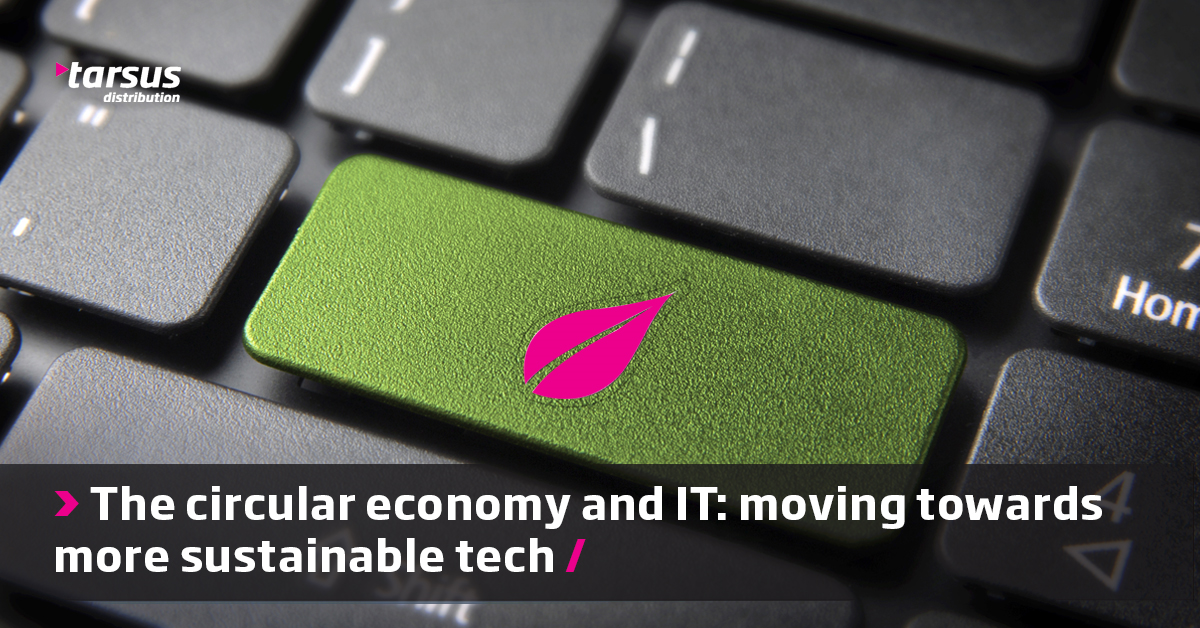

The drive to extend computer product lifecycles by making them easier to repair and upgrade.
Despite the many steps that IT manufacturers, governments and regulators have taken to reduce the impact of technology hardware on the environment, the industry is still responsible for significant carbon emissions. There is growing consensus that one of the best ways to further lessen greenhouse gases is for IT manufacturers to prolong the life of their products.
To date, IT manufacturers have focused their sustainability efforts on using recycled materials in manufacturing, improving the energy efficiency of their hardware, using less plastic in their packaging, and promoting recycling. But without addressing the environmental impact of short product lifespans, they will not be able to move towards a circular economy, defined as follows by the World Economic Forum:
“A circular economy is an industrial system that is restorative or regenerative by intention and design. It replaces the end-of-life concept with restoration, shifts towards the use of renewable energy, eliminates the use of toxic chemicals, which impair reuse and return to the biosphere, and aims for the elimination of waste through the superior design of materials, products, systems, and business models.”
According to TCOCertified, a sustainability standards body for the tech industry, around 275 million notebook computers are produced and sold globally every year. Most of these computers are used for just three to four years before obsolescence. In theory, components and materials from old computers are recycled to improve sustainability.
In practice, only 20% percent of global e-waste reaches controlled recycling facilities. “The rest may end up in landfill, is incinerated, or illegally exported to regions where e-waste legislation is weak or non-existent,” says TCOCertified. What’s more, many of the rare metals in computer products are difficult or impossible to extract, even when a machine is recycled.
Extending computer hardware’s lifespan for three or four years to beyond six could make a substantial difference. TCOCertified says that if all certified notebook computers that were manufactured in 2019 would be used for six years instead of four, it would reduce emissions of approximately 6.2 billion carbon dioxide equivalents—the annual average carbon footprint of 1.4 billion people.
To that end, we are seeing a growing emphasis on making IT products that are durable, repairable and upgradable. Ideally, all components should be upgradeable or replaceable, so that the entire unit doesn’t need to be disposed of if a key component breaks or if a component like the battery degrades. Spare parts should be easy to source.
"Most PC manufacturers are starting to make moves in this direction, partly because of sustainability and in part because of the EU’s right-to-repair law. For a glimpse of the future, Dell’s Concept Luna takes the idea to extremes. While it’s just a prototype for now and may take years to evolve into real product, Dell claims it could reduce a computer's carbon footprint by up to 50% compared to current laptop models." George Moss, Business unit manager: DELL CSG, Tarsus Distribution
The proof-of-concept laptop has a number of features that make repair and maintenance easier. Keyboards and screens just pop off because no glue or screws are used in assembly; the system uses passive cooling rather than a fan; and most components are modular and replaceable. Dell envisions an ecosystem where older parts can even be upcycled for use in a new product.
References:
https://tcocertified.com/news/circularity-in-practice-how-to-manage-notebook-computers-responsibly/
https://ideas.ted.com/how-right-to-repair-legislation-can-reduce-waste/
https://money.yahoo.com/dell-project-luna-pc-easier-to-repair-and-recycle-160056898.html
ENDS

© Copyright 2024 Tarsus Distribution